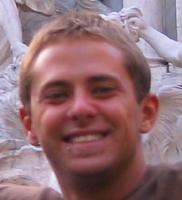Although there are some similarities between American and Bulgarian cuisine, overall the food is quite different and unique. One of the best aspects of Bulgarian food is that it is always fresh. Every family has their own personal garden and grow everything from tomatoes, peppers and cucumbers to grapes, carrots, and pumpkins. Due to this, most meals are based heavily around vegetables and usually served with either chicken or pork. Here are a few typical Bulgarian meals and how to make them:
Tarator: Cold Cucumber Soup
 Ingredients:
Ingredients:
2 cucumbers
500 grams of plain yogurt
3 cloves of garlic
2 tablespoons of crushed walnuts
2 tablespoon of fresh dill
Salt, oil and water (optional)
1) Grate the cucumbers and place them in a bowl
2) Mash the yogurt with a fork into a liquid like consistency and pour over the cucumbers
3) Add the crushed garlic, dill, walnuts, and salt
4) For a more watery consistency, add 1/4-1/2 cup of cold water
5) Refrigerate and serve
Shopska Salad: My favorite Bulgarian meal
 Ingredients
Ingredients
4 medium tomatoes, washed and diced
4 cucumbers, washed, peeled and diced
2 green bell peppers, diced
1 red onion, chopped
1 tablespoon fresh parsley
1 cup grated Bulgarian white cheese (cirene) or feta cheese
oil, vinegar, salt and pepper (to taste)
1) Put the already cut tomatoes, cucumbers, peppers, onion and parsley into a large bowl and mix.
2) Pour the white cheese or feta over the top of the vegetables
3) Pour olive oil, vinegar, salt and pepper over the cheese and enjoy!
Note: This is an extremely easy dish to make and is absolutely delicious.
Rhodopean Moussaka

Ingredients
.5 kilogram minced meat (pork and beef although just beef is alright)
1 kilogram potatoes, peeled and cut into cubes
3 tomatoes, chopped
2 onions, chopped
1/3 cup parsley
3 medium sized eggs
1 cup plain yogurt
3 tablespoons of flour
salt and pepper
1) Preheat the oven to 375 degrees F
2) Cook the minced meat and onions in a pan over the stove until the meat is brown
3) Mix together the meat, onions, potatoes, tomatoes, parsley, salt and pepper together in a large baking dish
4) Bake uncovered for 45 minutes - 1 hour until the potatoes are fully cooked (you should quite easily be able to mash them with a fork)
5) Combine the eggs, yogurt and flour together in a bowl and pour the mixture over the top of the dish
6) Bake for 15 more minutes and serve warm!
Hope you enjoy these recipes as much as I do. Be sure to have your parents help you when making them as they can get quite messy.
-Bulgarian Phrase of the Week: "Vkoosno" (Вкусно) = Delicious
 I was recently featured in a two-page article in one of the national papers here in Bulgaria so I figured I would share it with you. The article is titled "The Universal Favorite in Bratsigovo" and talks about my life and work here in Bratsigovo and why I decided to become a Peace Corps volunteer. All in all I'm quite excited I was selected to be interviewed for the article and will have a great souvenir to bring back to America.
I was recently featured in a two-page article in one of the national papers here in Bulgaria so I figured I would share it with you. The article is titled "The Universal Favorite in Bratsigovo" and talks about my life and work here in Bratsigovo and why I decided to become a Peace Corps volunteer. All in all I'm quite excited I was selected to be interviewed for the article and will have a great souvenir to bring back to America.

















